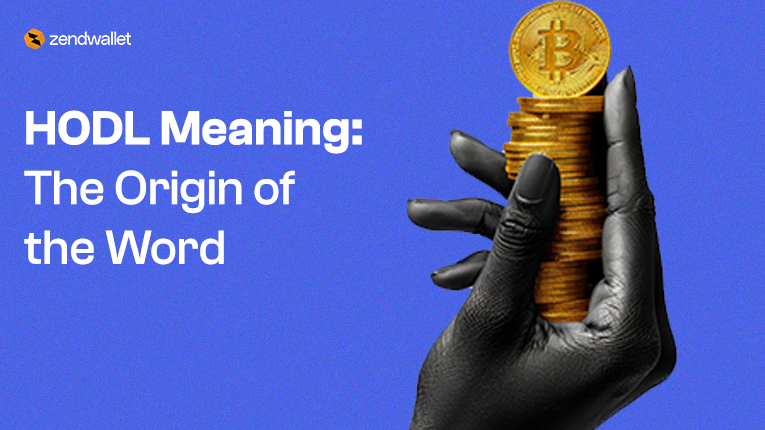The U.S. Securities and Exchange Commission (SEC) is an independent federal government regulatory agency established by Congress in 1934. It was created as the first federal regulator of the securities markets in response to the stock market crash 1929 and the subsequent Great Depression.
The SEC’s primary responsibilities include protecting investors, maintaining fair and orderly functioning of the securities markets, and facilitating capital formation.
It promotes full public disclosure, protects investors against fraudulent and manipulative market practices, and monitors corporate takeover actions in the United States. The SEC also approves registration statements for book-runners among underwriting firms.
What Are the Key Functions of the Securities and Exchange Commission (SEC)
1. Regulation and Oversight: The SEC regulates securities markets and oversees organizations and individuals involved, such as securities exchanges, brokerage firms, dealers, investment advisors, and investment funds.
It ensures fair dealing, promotes disclosure and protects against fraud by providing investors access to registration statements, periodic financial reports, and other securities forms through its EDGAR database.
2. Enforcement Action: The SEC can bring civil actions against lawbreakers and often collaborates with the Justice Department on criminal cases.
The SEC seeks injunctions in civil suits to prohibit future violations and civil money penalties.
The SEC may also bring administrative proceedings, such as cease-and-desist orders and registration suspensions.
3. Corporate Finance and Investor Protection: The Division of Corporate Finance ensures that investors receive material information about companies to make informed investment decisions.
The SEC also operates the Office of the Whistleblower, which rewards individuals for sharing information leading to successful enforcement actions.
SEC Divisions and Their Roles
1. Division of Corporate Finance: Ensure investors receive information relevant to a company’s financial prospects or stock price.
2. Division of Enforcement: Investigates cases and prosecutes civil suits and administrative proceedings.
3. The Division of Investment Management regulates investment companies, variable insurance products, and federally registered investment advisors.
4. Division of Economic and Risk Analysis: This division integrates economics and data analytics into the SEC’s core mission.
5. Division of Trading and Markets: Establishes and maintains standards for fair, orderly, and efficient markets.
History and Legislative Background of the SEC
The U.S. Securities and Exchange Commission (SEC) was established in response to the devastating 1929 stock market crash, which led to the Great Depression.
The primary goal was to restore investor confidence and ensure transparency in the financial markets. Here’s an expanded look at the SEC’s history and the key legislation that has shaped its mission and functions over the decades.
The Stock Market Crash of 1929
The stock market crash of October 1929 marked the beginning of a severe economic downturn. Rampant speculation, lack of regulation, and widespread fraud contributed to the crash, leading to a loss of confidence among investors. Many companies issued securities without accurate or adequate information, causing significant financial losses.
The Creation of the SEC
In response to the financial turmoil, the U.S. Congress passed the Securities Act of 1933 and the Securities Exchange Act of 1934.
The latter act created the SEC, which aims to regulate the securities markets, enforce federal securities laws, and protect investors.
Key Legislation Aiding the SEC’s Mission
1. Trust Indenture Act of 1939:
This act was designed to safeguard the interests of bondholders. It required the appointment of a trustee to act on their behalf and ensured that the bond indenture terms were fair and transparent.
2. Investment Company Act of 1940:
This act regulated the organization and activities of investment companies, such as mutual funds. It aimed to minimize conflicts of interest, ensure adequate information disclosure, and protect investors from potential abuses.
3. Investment Advisers Act of 1940:
This act established the framework for regulating investment advisers. It required advisers to register with the SEC, adhere to fiduciary standards, and disclose potential conflicts of interest to their clients.
4. Sarbanes-Oxley Act of 2002:
In the wake of corporate scandals like Enron and WorldCom, the Sarbanes-Oxley Act was enacted to enhance corporate governance and financial disclosure. It established stricter auditing and compliance requirements, created the Public Company Accounting Oversight Board (PCAOB), and imposed harsher penalties for corporate fraud.
5. Dodd-Frank Wall Street Reform and Consumer Protection Act of 2010:
Following the 2008 financial crisis, Dodd-Frank was introduced to prevent future economic meltdowns. It aimed to increase transparency and accountability in the financial system, regulate derivatives markets, and protect consumers from abusive financial practices. It also established the Financial Stability Oversight Council (FSOC) and enhanced the SEC’s enforcement powers.
6. Jumpstart Our Business Startups (JOBS) Act of 2012:
The JOBS Act aimed to encourage the funding of small businesses and startups by easing various securities regulations. It allowed for crowdfunding, increased the number of shareholders a company could have before requiring SEC registration, and facilitated easier access to capital for emerging companies.
The SEC’s Role in the Cryptocurrency Market
The S.E.C. has recently turned its attention to the burgeoning cryptocurrency market. The SEC’s mandate to protect investors and ensure fair markets extends to digital assets, leading to increased scrutiny and regulation. The commission has focused on:
– Determining whether certain cryptocurrencies qualify as securities under the Howey Test.
– Regulating cryptocurrency exchanges and initial coin offerings (ICOs).
– Enforcing anti-fraud measures to prevent market manipulation and protect investors.
The SEC’s involvement in the cryptocurrency market underscores its evolving role in responding to new financial innovations. It ensures that the principles of transparency, fairness, and investor protection are upheld in all financial markets.
Recent Developments and the SEC’s Role in Blockchain
The SEC has recently increased its involvement in regulating blockchain technology and cryptocurrencies.
This involvement spans several key areas, each critical to the growth and stability of the blockchain ecosystem. Here’s an overview of the S.E.C.’s regulatory focus and initiatives in this rapidly evolving field:
SEC Compliance for Blockchain Startups
Blockchain startups must navigate a complex regulatory landscape to ensure compliance with SEC regulations.
The SEC mandates that these startups adhere to federal securities laws, which often involve registering securities offerings and providing detailed disclosures about their business operations and financial condition. Compliance steps for blockchain startups include:
– Registration of Securities: Most blockchain startups that issue tokens need to determine if these tokens are considered securities under the SEC’s guidelines. If they are, the startup must register the offering with the SEC or qualify for an exemption.
– Disclosure Requirements: Companies must provide potential investors with material information, including financial statements, business risks, and details about using proceeds from the offering.
– Anti-Fraud Provisions: Blockchain startups must comply with anti-fraud provisions, ensuring that all statements made to investors are truthful and not misleading.
Impact of S.E.C. Regulations on I.C.O.s
Initial Coin Offerings (I.C.O.s) have been a popular method for blockchain startups to raise capital. However, the S.E.C. has closely scrutinized I.C.O.s, leading to significant regulatory actions:
– Registration and Exemptions: I.C.O.s must either register their token offerings as securities or qualify for an exemption. Failure to do so can result in enforcement actions, including fines and orders to return funds to investors.
Investor Protections: The S.E.C. emphasizes protecting investors from fraudulent I.C.O.s. This involves ensuring that ICOs provide transparent and accurate information about the project, its goals, and the potential risks involved.
– Enforcement Actions: The S.E.C. has taken action against numerous I.C.O.s for violations of securities laws, resulting in penalties, disgorgement of profits, and sometimes bans on participating in future securities offerings.
Security Tokens vs. Utility Tokens
A critical distinction in the SEC’s regulatory framework is between security tokens and utility tokens:
– Security Tokens: These are tokens that meet the criteria of an investment contract as defined by the Howey Test. They are subject to the same regulations as traditional securities, including registration and disclosure requirements.
– Utility Tokens: These tokens provide access to a product or service and are not considered securities if they do not have the characteristics of an investment contract. However, if a utility token is marketed or sold in a way that suggests it will appreciate, it could be classified as a security.
The SEC has guided issuers to help determine the appropriate classification of their tokens and ensure compliance with relevant regulations.
The SEC’s Approach to DeFi
Decentralized Finance (DeFi) presents unique regulatory challenges for the SEC due to its decentralized nature:
– Regulatory Uncertainty: DeFi platforms often operate without traditional intermediaries, making determining regulatory oversight and compliance obligations difficult.
– Compliance Strategies: The SEC is Developing frameworks to address the specific risks and compliance issues associated with DeFi, including the potential for fraud, market manipulation, and the lack of investor protections.
– Enforcement and Guidance: The SEC has indicated that existing securities laws apply to DeFi projects and has taken enforcement actions against DeFi platforms that violate these laws. Ongoing guidance and rulemaking efforts aim to clarify the regulatory landscape for DeFi participants.
SEC Guidelines for Blockchain-based Securities
Issuing blockchain-based securities involves adhering to specific SEC guidelines to ensure compliance with federal securities laws:
– Registration Requirements: Issuers of blockchain-based securities must register their offerings with the SEC unless they qualify for an exemption. This process involves providing detailed disclosures about the security and the issuer.
– Continuous Reporting: Once registered, issuers must comply with ongoing reporting obligations, including filing annual and quarterly reports, proxy statements, and other disclosures required by the SEC.
-Investor Protection Measures: The SEC mandates that issuers implement measures to protect investors, including clear communication about the risks associated with the investment and the issuer’s business operations.
How the SEC Makes New Rules
The SEC follows a structured process for rulemaking, starting with a concept release and then a proposal. Both stages are published for public review and comment.
The SEC then considers public input and expert opinions before voting to adopt the rule.
Comparison with FINRA
The S.E.C. is a government agency that regulates securities markets, while FINRA is a non-profit, self-regulatory organization that oversees broker-dealers and issues licenses to securities professionals.
Accountability and Governance
The S.E.C. is an independent federal agency headed by a bipartisan five-member commission, appointed by the President and confirmed by the U.S. Senate. It operates under the authority of various federal laws and is accountable to Congress.
The SEC in Nigeria
Like the U.S. S.E.C., Nigeria has its own Securities and Exchange Commission (SEC), responsible for regulating and developing the Nigerian capital market. Established by the Investment and Securities Act of 1999, the Nigerian SEC’s key functions include:
1. Regulation and Oversight: The Nigerian SEC regulates the securities market to ensure fair, transparent, and efficient market practices. It oversees the activities of securities exchanges, brokers, dealers, investment advisors, and other market participants.
2. Investor Protection: The Nigerian SEC protects investors from fraudulent and unfair practices by ensuring full disclosure and compliance with the law. It mandates that public companies provide accurate and timely information about their operations and financial condition.
3. Market Development: The SEC in Nigeria plays a significant role in developing the capital market by introducing new regulations and initiatives to enhance market efficiency and investor confidence.
4. Enforcement Actions: The Nigerian SEC has the authority to enforce securities laws and regulations, taking action against individuals or entities that violate these laws. This includes imposing fines, suspensions, and other penalties.
Recent Developments in Blockchain Regulation by the Nigerian SEC
The Nigerian SEC has also been active in regulating blockchain technology and cryptocurrencies. In September 2020, it released a statement on digital assets, classifying them as securities unless proven otherwise. Key aspects include:
– Registration and Compliance: Digital asset issuers and operators must register with the Nigerian SEC and comply with its regulatory guidelines.
– Investor Protections: The Nigerian SEC emphasizes protecting investors by ensuring transparency and full disclosure in digital asset transactions.
– Regulatory Framework: The Nigerian SEC is working on developing a comprehensive regulatory framework for blockchain and cryptocurrency activities to foster innovation while safeguarding the
With over 40,000 users, Zendwallet offers a secure and reliable platform for trading and managing digital assets, aligning with the SEC’s commitment to market integrity and investor protection.
By using Zendwallet, investors can benefit from:
– Comprehensive Compliance: Zendwallet adheres to all relevant SEC regulations, ensuring that all transactions and activities on the platform are fully compliant with federal securities laws.
Robust Security Measures: Zendwallet focuses on protecting user assets and employs advanced security protocols to safeguard against fraud and cyber threats.
– Transparent Disclosures: Zendwallet provides users with clear and accurate information about their investments, helping them make informed decisions in line with SEC guidelines.
– User Education and Support: Zendwallet offers resources to help users understand the regulatory environment and navigate the complexities of digital asset trading.
Related: How Does the SEC Protect Investors?
Key Takeaways
– The SEC is responsible for regulating the securities markets and protecting investors.
– Established by the U.S. Securities Act of 1933 and the Securities Exchange Act of 1934, the SEC helped restore investor confidence following the 1929 stock market crash.
– It can bring civil actions and collaborate with the Justice Department on criminal cases.
– The SEC’s enforcement actions include injunctions and civil money penalties.
Conclusion
The SEC, both in the U.S. and Nigeria, plays a critical role in ensuring the integrity of the securities markets and protecting investors. As blockchain technology evolves, these regulatory bodies adapt their frameworks to address new challenges and opportunities.
Whether dealing with traditional securities or the complexities of digital assets, the S.E.C.’s commitment to fair, transparent, and efficient markets remains paramount.
Platforms like Zendwallet are essential in this ecosystem. They provide secure and compliant services to support investors in their financial journeys. Join Zendwallet today and be part of a trusted community shaping the future of finance.
Also Read: Smart Contracts in Blockchain



